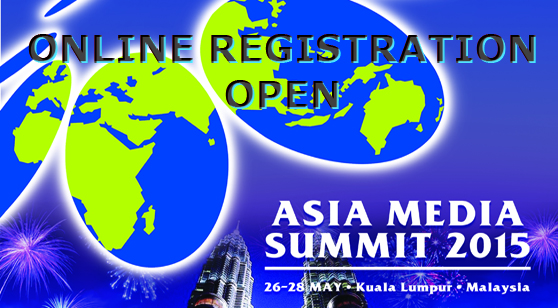Day 1 – Tuesday, 26th May 2015
1615 – 1730 : Moderated Debate : Journalism, Ethics and Social Media
With the advent of social media, a new breed of journalists is emerging. In blogs and micro blogs, social networking sites and in multimedia content sharing services, these ‘new’ journalists contribute, disseminate and share information. They have also performed news gathering and gatekeeping functions that mainstream media journalists have traditionally carried out. Are mainstream media’s rights, privileges and principles such as truth seeking and independent reporting threatened by the ‘new’ journalists? Are citizen journalists making news more or less accurate? Do we need to reinvent a code of media ethics from the ground up? How do we deal with new values such as transparency over objectivity? How should we treat unfiltered sharing of information over a filtered verification of the facts? What are the best forms of practice, and the norms to guide journalists?
Day 1 – Tuesday, 26th May 2015
1615 – 1730 : Moderated Debate : Journalism, Ethics and Social Media
With the advent of social media, a new breed of journalists is emerging. In blogs and micro blogs, social networking sites and in multimedia content sharing services, these ‘new’ journalists contribute, disseminate and share information. They have also performed news gathering and gatekeeping functions that mainstream media journalists have traditionally carried out. Are mainstream media’s rights, privileges and principles such as truth seeking and independent reporting threatened by the ‘new’ journalists? Are citizen journalists making news more or less accurate? Do we need to reinvent a code of media ethics from the ground up? How do we deal with new values such as transparency over objectivity? How should we treat unfiltered sharing of information over a filtered verification of the facts? What are the best forms of practice, and the norms to guide journalists?
Moderator |
|
 |
Ms Nathalie Labourdette Head, Eurovision Academy, European Broadcasting Union (EBU) |
Penalists |
|
 |
Mr Marc Lourdes Managing Editor, Yahoo! Southeast Asia – Editor-in-Chief, Yahoo! Singapore, Singapore |
 |
Mr Riyaz Sayed-Khaiyum Chief Executive Officer, Fiji Broadcasting Corporation (FBC), Fiji |
 |
Ms Deborah Steele Editor, Asia Pacific News Centre, Australian Broadcasting Corporation (ABC), Australia |
 |
Dr. Venkat Iyer Barrister and Law Commissioner, Northern Ireland |
 |
Mr Sami Zeidan Senior Presenter, Al Jazeera English, Qatar |
AMS 2015 : Moderated Debate
Day 1 - Tuesday, 26th May 2015
1615 - 1730 : Moderated Debate : Journalism, Ethics and Social Media
With the advent of social media, a new breed of journalists is emerging. In blogs and micro blogs, social networking sites and in multimedia content sharing services, these ‘new’ journalists contribute, disseminate and share information. They have also performed news gathering and gatekeeping functions that mainstream media journalists have traditionally carried out. Are mainstream media’s rights, privileges and principles such as truth seeking and independent reporting threatened by the ‘new’ journalists? Are citizen journalists making news more or less accurate? Do we need to reinvent a code of media ethics from the ground up? How do we deal with new values such as transparency over objectivity? How should we treat unfiltered sharing of information over a filtered verification of the facts? What are the best forms of practice, and the norms to guide journalists?
AMS 2015 : Parallel Session 2
Day 1 - Tuesday, 26th May 2015
1400 - 1530 : Parallel Session 2: Facilitating Citizens’ Engagement during Elections
Social media offers opportunities for openness, participation, collaboration and interactivity that facilitate citizens’ engagement. Its many platforms can be useful during elections. Citizens can ask questions and solicit information on issues and events that affect their lives. They can participate in debate and discussion, and share their insights and feedback critical for the functioning of a healthy society. To what extent have social media platforms impacted elections and political agenda setting, particularly in countries with different media systems, different political systems and different population sizes? How can broadcasters interlink effectively with social media as a place of conversation for electoral issues and personalities? What are some best practices?
AMS 2015 : Parallel Session 1
Day 1 - Tuesday, 26th May 2015
1400 - 1530 : Parallel Session 1: New Technology/New Tools to Connect, Share and Network
Social media is constantly reinventing itself, offering users a wide range of technologies, tools and tactics for various purposes. We have software, apps, websites, text messaging, virtual worlds, game platforms, content sharing sites, podcasts, blog, tags, and mobile marketing. These are meant to reach out and connect with other human beings, create a relationship and build trust. Where is technology going that is reshaping the media market? What new tools and technologies are emerging that will ensure proficient application and improve relationships, content, viewership and revenues? How do we deal with Internet and broadband access and adoption to ensure the widest benefit of these social media tools and technologies?
AMS 2015 : Plenary Session 2
Day 1 - Tuesday, 26th May 2015
1115 - 1215 : Effective Strategies to Build Markets, Content and Business
More than developing a social media website, broadcasters need a social media strategy that will innovatively enhance their audience engagement, programmes, sales and promotion, research and their brand. Integrating the social media strategy into the overall business plan that reinforces each other becomes critical, and this can be done in a structured and effective manner. To catch audiences and boost ratings, should broadcasting organisations adopt social media anywhere, anytime and how? Do they have a clear vision and a set of strategies to deal with the benefits and risks of social media to business? How can broadcasters exploit social media to monetise opportunities, improve branding and ensure sustainability? How can broadcasters best measure the effectiveness and value for money of social media engagement?
AMS 2015 : Plenary Session 1
Day 1 - Tuesday, 26th May 2015
0945 - 1045 : Social Media’s Landscape, Trends and its Future
Social media is a vast and complex landscape to master, and players in this territory are afforded a wide range of functionalities to create content, publish, share, discuss and network. It enriches engagement with people, events and brands that matter to them. The broadcast industry needs to understand social media’s practical role and influence in business and society. What are the innovations and trends in social media’s usage, functionalities, and activities? Should broadcasters be concerned with its continued growth? Are they monitoring and exploiting social media and in what ways? Do they have policies to minimise social media’s misuse and other risks? What does the future hold beyond Facebook, Twitter and YouTube, among others?
AMS 2015 : Inaugural Session and Keynote Address
Day 1 - Tuesday, 26th May 2015
0900 : 0945 - Inaugural Session and Keynote Address
Welcome Remarks | Mrs Dra Rosarita Niken Widiastuti President of AIBD General Conference & President Director, Radio Republik Indonesia (RRI), Indonesia |
Keynote Address | YB Dato’ Sri Ahmad Shabery Cheek Minister of Communications and Multimedia Malaysia |
Special Address(Video Message) | H.E. Ban Ki-moon Secretary-General of the United Nations (UN) |
Closing Remarks | Mr Chang Jin Director, Asia-Pacific Institute for Broadcasting Development (AIBD) |
Growing Importance of Mobile Journalism
Smart phones are increasingly becoming an important tool in telling news stories and producing short pieces and documentaries for various media platforms, including social networking sites
Extension of Online Registration Deadline for AMS 2015
Online Registration Extended
The deadline for online registration to the Asia Media Summit is now officially extended to Thursday, 30 April 2015.
All delegates are requested to urgently register by clicking the link here
Travel Itineraries
With the AMS fast approaching, all foreign delegates are urgently requested to submit their travel itineraries and hotel booking through their online registration or directly to AIBD.
Online Registration Opens for AMS 2015
Online Registration
Online registration for the Asia Media Summit (AMS) 2015, to be held from 26 - 28 May 2015 in Kuala Lumpur, Malaysia is now officially open. Please register using the link here.
We are encouraging all delegates to register as early as possible.
The deadline for registration is Wednesday, 15 April 2015.
Applications Open for 2015 Dart AsPac Fellowship
 The Dart Centre for Journalism & Trauma offers journalists, photographers, camera operators, editors and producers in the Asia-Pacific region a unique opportunity to improve coverage of tragic events.
The Dart Centre for Journalism & Trauma offers journalists, photographers, camera operators, editors and producers in the Asia-Pacific region a unique opportunity to improve coverage of tragic events.
The fellowships offer briefings by leading experts in the trauma and journalism fields along with peer-to-peer discussions on the many challenges of covering tragedy and violence. The fellowships cover all travel, accommodations and ground expenses while attending the programme.







